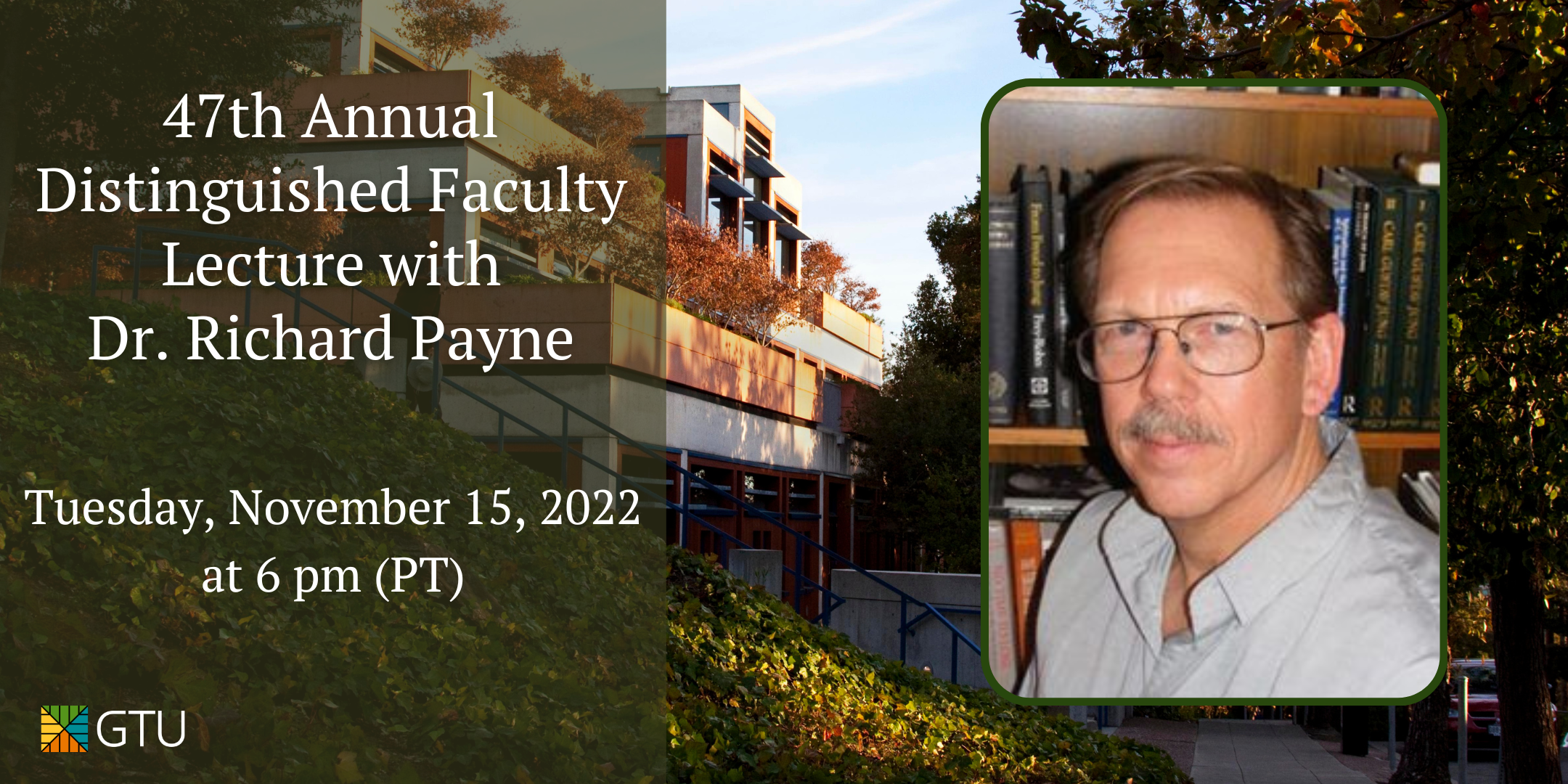

Dr. Richard Payne will present the 47th Annual Distinguished Faculty Lecture titled, “From Ritual to Religion: The Consequences of Taking Nondualism Seriously” on November 15, 2022, at 6:00 PM PST. Register for this event on Eventbrite.
Each November, the GTU faculty honors a distinguished professor who embodies the scholarly standards, teaching excellence and commitment to ecumenism that defines the GTU. Nominations are made by GTU faculty and are then considered by the Council of Deans, which selects the lecturer. This year’s lecture is co-hosted by GTUx.
Dr. Richard K. Payne is the Chair of IBS Publications Committee and is also the Buddhism and Contemporary Psychology Certificate Program Director at the Institute of Buddhist Studies (IBS) and is a member of the Core Doctoral Faculty.
During his dissertation research into tantric fire ritual (Skt. homa, Jpn. goma) on Mt. Kōya in Japan, Payne also completed training as a Shingon priest (ajari). Clustering around his core research program on tantric ritual are broader theoretical concerns about the conduct of such research. This includes the study of ritual across cultural boundaries and over long durations, and the use of language in tantric Buddhist ritual. He is co-editor with Georgios Halkias of the Oxford Research Encyclopedia/Religion/Buddhism, and with Glen Hayes is co-editing The Oxford Handbook of Tantric Studies.
The focus of his research is tantric Buddhist ritual practices in Japan. Today the field of tantric Buddhist studies is largely structured by a narrative formed around the simple dichotomy between doctrine and practice. That narrative raises up Mahayana Buddhist thought as the conceptual framework that gives tantric ritual practices their meaning, significance, value, and even their status as Buddhist. The goal of this presentation is to problematize that narrative. Adopting the narrative with its dichotomy between doctrine and practice is made easy because it is in turn based on a more fundamental dichotomy — the distinction between thought and action. The ramifications of this dualism are not simply philosophical. The dualism is pervasive and enduring — so deeply rooted in popular culture and so strongly reinforced by social morality as to be deployed unreflectively on an everyday basis. In other words it appears to be natural. And because the dichotomy between thought and action is naturalized, the presumption that tantric Buddhist practice derives its meaning, significance, value, and legitimacy from Mahayana doctrine can likewise be accepted without critical reflection. Critical reflection does, however, reveal the doctrine/practice dichotomy to be an artifice, as are also the thought/action and mind/body dichotomies. In turn they constitute constraints on religious studies. Nondual formulations can provide alternatives, the heuristic value of which is to encourage asking new questions and exploring new answers.
Degrees and Certifications:
Ph.D., History and Phenomenology of Religion, Graduate Theological Union
Ajari, Shingon Buddhist priest, Mt. Kōya
Recent Publications:
Buddhism under Capitalism, co-edited with Fabio Rambelli (Bloomsbury Academic, 2022)
Pure Lands in Asian Texts and Contexts: An Anthology, co-edited with Georgios Halkias (University of Hawai‘i Press, 2019)
Language in the Buddhist Tantra of Japan: Indic Roots of Mantra (Bloomsbury, 2018)
Homa Variations: The Study of Ritual across the Longue Durée, co-edited with Michael Witzel (Oxford, 2016)